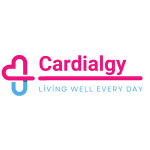Tagged: Coping Strategies, emotional health, Mental Health, Mental wellness, PTSD, PTSD Symptoms, PTSD Treatment, Support Groups, Trauma
- This topic has 0 replies, 1 voice, and was last updated 7 months, 3 weeks ago by
 Chester.
Chester.
-
AuthorPosts
-
December 12, 2024 at 8:29 am #4186
 ChesterParticipant
ChesterParticipantWhat is PTSD?
Post Traumatic Stress Disorder (PTSD) is a mental health condition triggered by experiencing or witnessing a traumatic event. It can have a significant impact on a person’s daily life and well-being.Symptoms of PTSD
1. Intrusive Thoughts:
Recurring, distressing memories or flashbacks of the traumatic event.2. Avoidance:
Deliberately avoiding places, activities, or people that remind you of the traumatic event.3. Negative Changes in Thinking and Mood:
Persistent negative thoughts, feelings of hopelessness, and emotional numbness.4. Hyperarousal:
Increased irritability, difficulty sleeping, and being easily startled.Causes of PTSD
1. Traumatic Events:
Experiencing or witnessing events such as natural disasters, accidents, military combat, or violent assaults.2. Personal History:
Individuals with a history of mental health issues or previous trauma may be more susceptible to developing PTSD.3. Biological Factors:
Genetic predispositions and brain structure differences can influence the likelihood of developing PTSD.Diagnosis and Treatment
1. Professional Evaluation:
A mental health professional can diagnose PTSD based on a thorough evaluation of symptoms and personal history.2. Psychotherapy:
Cognitive Behavioral Therapy (CBT) and Eye Movement Desensitization and Reprocessing (EMDR) are effective treatments for PTSD.3. Medication:
Antidepressants and anti-anxiety medications can help manage symptoms.4. Support Groups:
Connecting with others who have experienced similar trauma can provide emotional support and coping strategies.Coping Strategies
1. Mindfulness and Relaxation Techniques:
Practicing mindfulness, meditation, and deep breathing exercises to reduce stress.2. Physical Activity:
Regular exercise can improve mood and overall well-being.3. Healthy Lifestyle Choices:
Maintaining a balanced diet, getting enough sleep, and avoiding alcohol and drugs.Conclusion
Understanding PTSD and its effects is crucial for both sufferers and their loved ones. With proper treatment and support, individuals with PTSD can lead fulfilling lives. If you or someone you know is struggling with PTSD, seek professional help. -
AuthorPosts
- You must be logged in to reply to this topic.